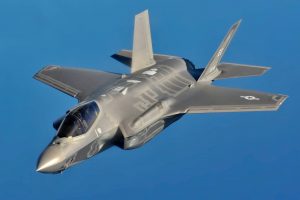Kyrgyzstan has bought a fresh batch of Turkish-made military drones, bolstering an aerial fleet that already includes Bayraktar TB2 unmanned aerial vehicles.
Writing in a post on Facebook on January 17, Daiyrbek Orunbekov, the press secretary for the presidential administration, linked the acquisition of the drones to the recent history of border conflicts with Tajikistan.
Orunbekov identified the new purchases as Aksungur and Anka UAVs, but provided no details of either how many have been bought or how much was paid for them. When contacted by Eurasianet for those details, he stated that he was unable to immediately provide specifics.
He did suggest, however, that the government was able to afford the drones through economies achieved by cutting salaries to civil servants.
“It is clear that if the country cannot defend itself, then quarterly bonuses and additional payments to government workers have no meaning. That is why it is wholly out of place for colleagues to feel demeaned by the supposed ‘bonus cuts,’” Orunbekov wrote on Facebook.
When alluding to the need for Kyrgyzstan to defend itself, Orunbekov was unmistakably referring to last year’s deadly border conflicts with Tajikistan.
“Since clashes in Batken, particular attention is being paid to strengthening the armed forces,” he wrote, alluding to the Kyrgyz province worst affected in that conflict.
Kyrgyzstan acquired an unspecified number of Bayraktar TB2 drones at the end of 2021 and then added to that complement with Bayraktar Akıncı drones the following October.
In September, President Sadyr Japarov oversaw the ceremonial inauguration of the country’s maiden unmanned aerial vehicle base, which is run by the border service, a branch of the State Committee for National Security.
“I would like to emphasize that efforts to strengthen our armed forces are focused only on defense,” Japarov said at the time.
Japarov has elsewhere said that the Kyrgyz government is spending “unprecedented amounts” on bolstering its defense capabilities, although he did not offer any specific figures.
Kyrgyzstan’s race to strengthen its military arsenal since the most recent spates of unrest on the Tajik border have not only been focused on airpower.
In October, Defense Minister Baktybek Bekbolotov announced that Kyrgyzstan had bought a Belarusian-made Pechora-2BM anti-aircraft missile system.
“The system will arrive in the near future and will be deployed in Batken,” the minister said at the time.
This clamor for building up a powerful arsenal of weapons is playing out against a persistent frost in relations between Kyrgyzstan and Tajikistan following hostilities in September that claimed more than 100 lives, mainly among civilians.
Both sides blame one another for sparking the clashes. Most available evidence indicates the bulk of the damage to infrastructure inflicted in the conflict was sustained by Kyrgyz civilians, however.
This article was originally published on Eurasianet.






